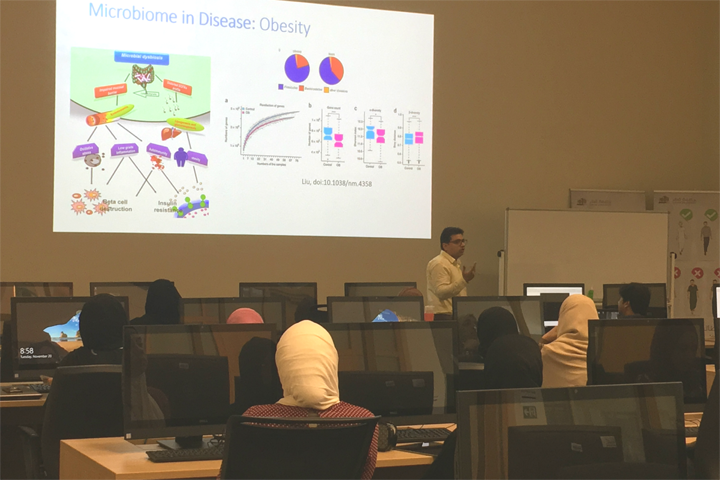Speakers:Dr. Jithesh Puthen (SIDRA), Eng. Hakeem Almabrazi (SIDRA), Dr. Muhammad Umar Sohail (BRC)
Date: 19-20 November 2018

The Biomedical Research Center (BRC) at Qatar University (QU) held on November 19-20 a workshop on “Next Generation Sequencing (NGS) Data Analysis Workshop”. The primary goal of this workshop was to introduce participants with NGS and sequence assembly. Around 30 individuals attended the workshop representing various academic institutions and labs. Dr. Asmaa Al Thani, the Dean of College of Health Science and Director of the Biomedical Research Center at QU gave the opening speech, where she welcomed the attendees and talked about the importance of NGS data analysis, genome assembly and statistical interpretation for biomedical researchers. The workshop hosted two speakers from SIDRA: Dr. Jithesh Puthen, Investigator of Translational Bioinformatics and Lead of the Bioinformatics Core, and Eng. Hakeem Almabrazi, Senior Software Architect. Dr. Muhammad Sohail, Research Associate, was the speaker from the BRC. Dr. Jithesh introduced NGS data analysis (background) to trainees in the theoretical session. Dr. Hakeem later demonstrated Linux and quality control in genome sequencing in the practical hands-on session. On the second day, Dr. Muhammad gave a microbiome lecture and demonstrated QIIME2 in the practical session that followed. Future workshops related to NGS are under consideration due to the positive feedback from trainees.